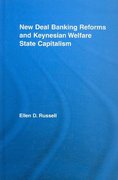Question
Due to scarcity, the most appropriate decision related to scarcity is opportunity cost or trade-off. As such, with the current economic hardship in this post
Due to scarcity, the most appropriate decision related to scarcity is opportunity cost or trade-off. As such, with the current economic hardship in this post covid-19 era, people are forced to make choices about which desire to satisfy and which to leave unfulfilled due to scarcity. As argued by Zhao & Tomm (2017), scarcity occurs when people have limited resources and are unable to meet their demands; hence, they have to make choices (trade-offs) based on what they need and what they have.
The decision I have made recently due to scarcity is to use public transport to go to work instead of fueling my car. This is a trade-off/opportunity cost of forgoing to fuel my car and instead using the public means of transport to go to work. My decision was necessitated by the increased cost of gasoline/oil, which has made it costly to fuel and move around with my car. On average, I would spend about $40 a dollar to fuel and service my car, which is costly and unsustainable. On the other hand, using public means of transport only costs me $5 a day, which is affordable and cost-effective. The research has proven that owning a car during these economic hardships is more costly than using public means of transport. While the idea of walking around with public vehicles while I own a car seems absurd, it is an economical choice that has helped me save extra cash that I could use to buy food products. Please comment on the text.
Step by Step Solution
There are 3 Steps involved in it
Step: 1

Get Instant Access to Expert-Tailored Solutions
See step-by-step solutions with expert insights and AI powered tools for academic success
Step: 2

Step: 3

Ace Your Homework with AI
Get the answers you need in no time with our AI-driven, step-by-step assistance
Get Started


